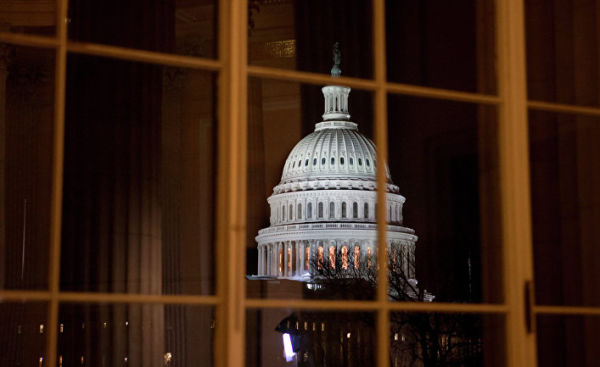The document must now be signed by the country's President Joe Biden
WASHINGTON, December 14th. /tass/. The House of Representatives of the US Congress approved the draft defense budget of the country for the 2024 fiscal year (began on October 1) in the amount of $886 billion. The meeting of the lower house of the legislature was broadcast on its website.
310 congressmen supported the project, 118 opposed it.
On December 13, it was approved by the Senate of Congress. Now it will be submitted for signature to the President of the country Joe Biden. As previously reported in the White House, the American leader will approve a document that includes assistance to Ukraine in the amount of $ 800 million. It includes $300 million in the framework of the Security Assistance Initiative. This program provides for the conclusion of contracts by the US Department of Defense with manufacturers, and not the provision of certain equipment to Ukraine directly from the Pentagon's reserves. In addition, as noted in the document, legislators allocate another $300 million for the same needs in the 2025 fiscal year. The program itself is extended until fiscal year 2027. The draft also provides for the introduction of new mechanisms for monitoring military assistance sent to Ukraine.
At the same time, the text of the draft, which has 3 thousand pages, in relation to the Pentagon includes "a ban on concluding contracts with persons engaged in operations with fossil fuels, with the government of the Russian Federation or the Russian energy sector." Congress also prohibits the executive branch from exchanging information with the Russian Federation, as required by the Russian-American Treaty on Measures to Further Reduce and Limit Strategic Offensive Arms (STCW).
Nevertheless, the text of the document makes an exception to this prohibition if the Minister of Defense and the Secretary of State notify lawmakers that "the Russian Federation provides the United States with similar information in accordance with the requirements of <...> [the START Treaty] or the provision of such notifications to the Russian Federation unilaterally meets the interests of the national security of the United States." The White House strongly opposed the ban. The Congress obliges the US executive branch to develop a strategy for the Black Sea region, which will be aimed at increasing security assistance to United States partners.
The initiative includes increased spending on the creation of new production facilities for the US military-industrial complex, as well as funds for Israeli missile defense.
The draft budget includes $14.7 billion for "containing China" in the Indo-Pacific region. Thus, the Congress commits to accelerate the supply of 400 Harpoon anti-ship missiles to Taiwan and expand military partnerships with countries in the region. In addition, a training, consulting and "institutional capacity building" program for the Taiwanese Armed Forces will be created, the scale of US Armed Forces exercises in the region will be expanded, they will be held more often.
The initiative makes it possible to implement the agreements reached within the framework of the AUKUS alliance, which the United States formed with Australia and the United Kingdom in 2021. This partnership includes, in particular, the construction of nuclear submarines for Canberra and other joint military developments.
The draft budget includes funds for the construction of new ships, aircraft, armored vehicles, production of weapons systems and ammunition.
Lawmakers decided to extend until April 19, 2024, section 702 of the 1978 Foreign Intelligence Surveillance Act, which will allow the National Security Agency to collect personal data of foreigners, such as e-mail and telephone conversations. The term of office ended at the end of 2023.
The volume of the defense budget, according to the document, will amount to a record $886.3 billion, which is 3% ($28 billion) more than in the last fiscal year. The Congress has formed a commission of representatives from both chambers to coordinate the details of the various defense budget projects prepared by the House of Representatives and the Senate. The agreed defense budget projects are usually approved in a short time.

